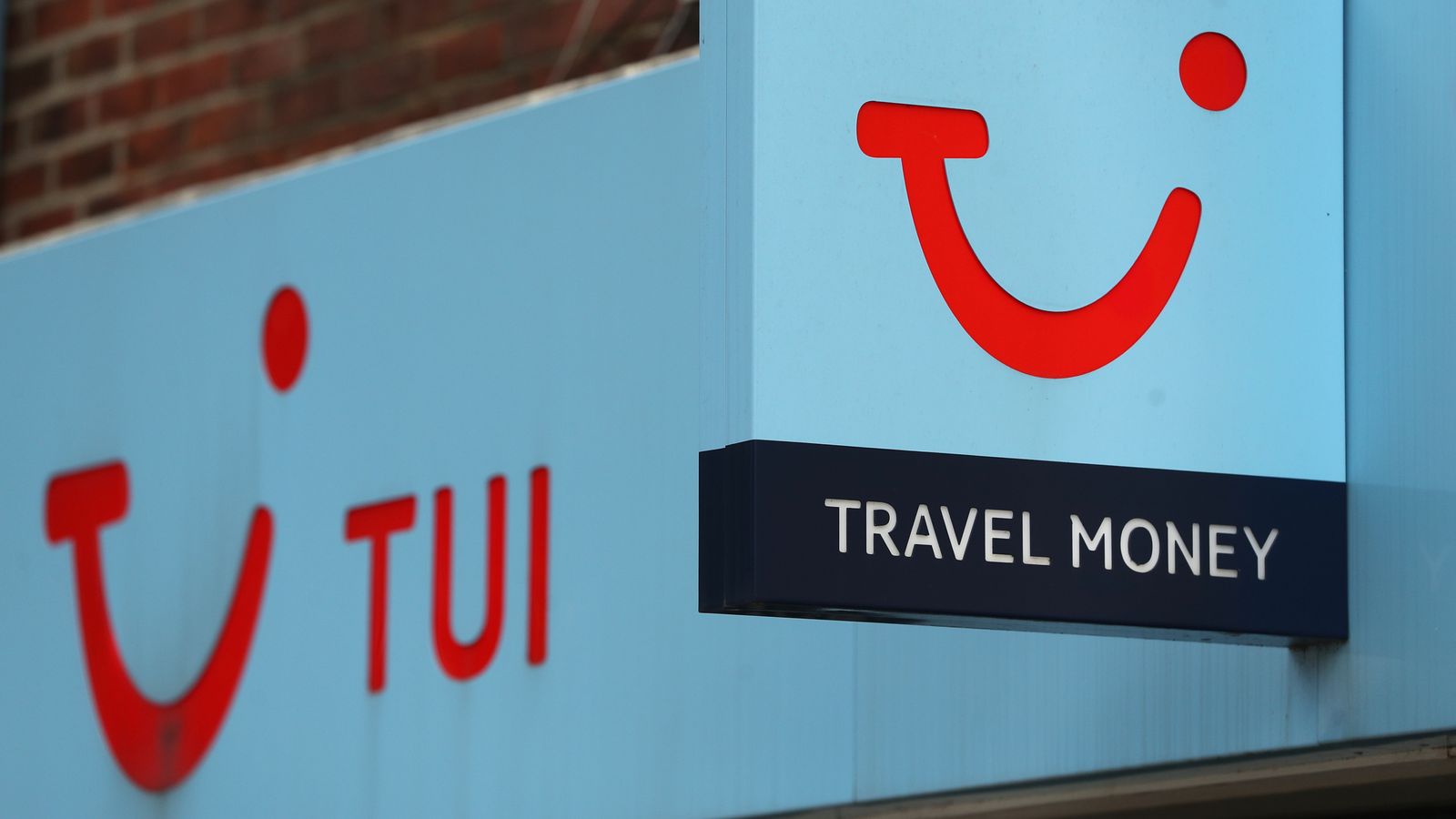The chief executive of TUI has said that 2022 will be a “good financial year” and also promised that the company has stopped cutting jobs.
Fritz Joussen was speaking after the travel firm reported a strong recovery in customer demand for the summer, more than halving its losses for the past six months.
He also said that the company has stopped cutting jobs and is concentrating on rebuilding staff, with 1,500 additional positions.
Mr Joussen said: “The high demand for travel and the very good business performance confirm our forecasts.
“2022 will be a good financial year. Capacity almost reaches pre-corona level of 2019.
“After two years of crisis, we expect TUI to become profitable again in the current financial year with a significantly positive underlying EBIT (earnings before interest and tax).
“This is the basis for new growth.”
UK summer holiday bookings ‘19% up on pre-pandemic levels’, TUI reports
COVID-19: Northern Ireland to scrap traffic light travel system as holiday bookings soar
COVID-19: UK faces ‘rocky time’ as people head off to Europe on holiday due to lower jab rates, expert warns
The firm, which runs hotels, airlines, cruises and travel agencies, reported its financial results on Wednesday.
It included:
• An earnings loss of €614.5m (£525m) for the half-year to 31 March, compared to a €1.3bn (£1.11bn) loss for the same period a year earlier
• An underlying loss before interest and taxes during the second quarter of €330m (£281m), almost halving the €633m (£540m) loss for the same period last year
• Revenues for the past half-year up more than five-fold to €4.5bn euros (£3.8bn) against the same period a year earlier, when the firm was still struggling with COVID-19 restrictions
The German-headquartered company said it has already achieved 85% of the booking levels seen in the summer of 2019 before the pandemic.
The travel group said its UK operation “continues to lead the way” for summer bookings, with an 11% increase against the levels seen in summer 2019.
It has also been helped by holidaymakers booking more “short notice” trips and spending more money while they are travelling.






















